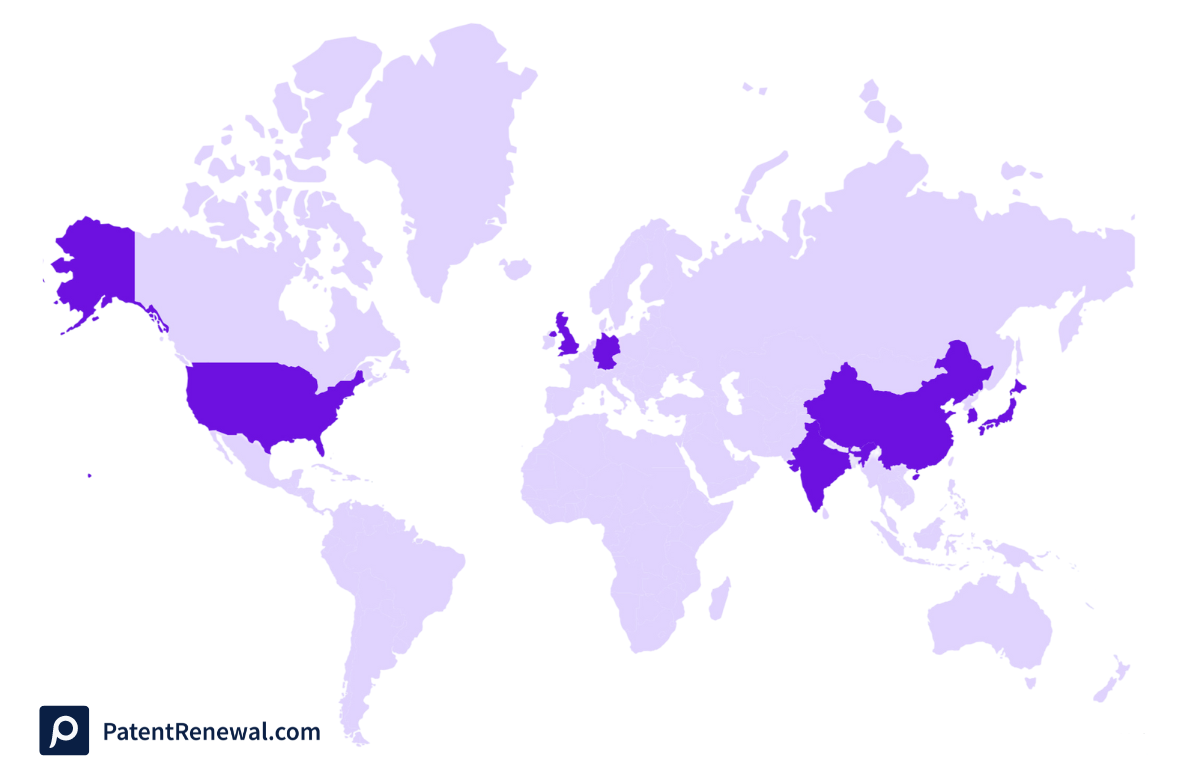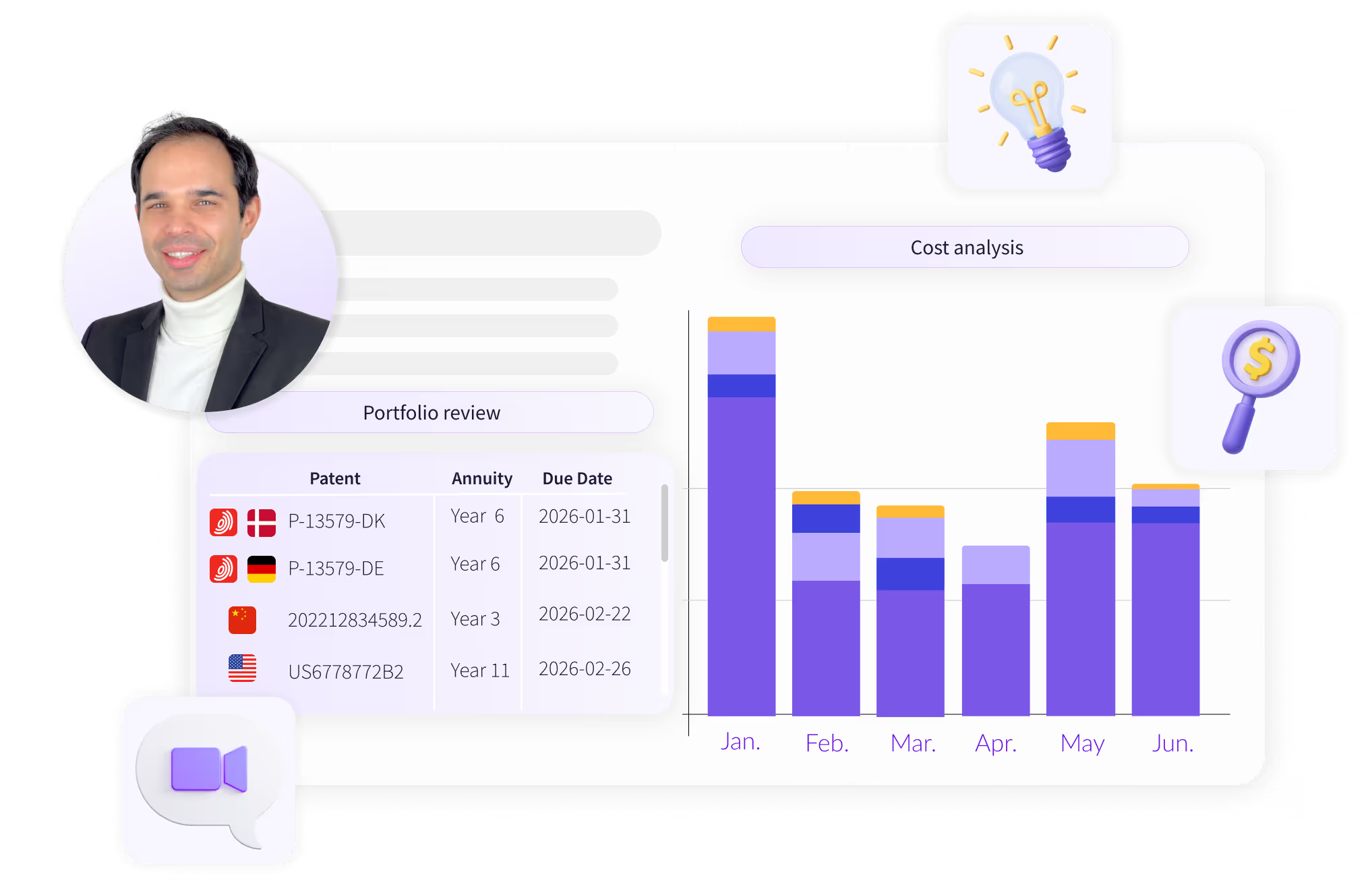TRY OUR NEW (FREE) IP RENEWAL COST CALCULATOR
Calculate.avif)
The recently released Patent Landscape Report on Generative Artificial Intelligence published by the World Intellectual Property Organization (WIPO) offers a detailed look into the fast-evolving field of Generative AI (GenAI) highlighting the important trends in patenting activity and research developments.
As GenAI increases accuracy and productivity it continues to impact various industries. The report of McKinsey & Company discovered that AI could automate up to 45% of the tasks performed by retail, hospitality, and healthcare workers.
This blog post examines the key concept of GenAI and its influence on research fields and patent filings with the key global rankings.
Generative AI refers to AI systems that can create content such as text, images, audio, and video. Unlike traditional AI, which follows predefined rules, GenAI uses deep learning and neural networks to generate new, meaningful content from large data sets.
This innovative approach has led to significant advances in various applications, including conversational AI such as OpenAI's ChatGPT, and image generation models such as DALL-E. The development of GenAI represents a major evolution in AI, making it an important area of focus for researchers and patent professionals.
The global landscape of GenAI patenting has grown exponentially, especially since the introduction of transformer models in 2017. According to the WIPO report, the number of GenAI patent families grew from 733 in 2014 to over 14,000 in 2023.
This increase is largely due to advancements in computing power and the availability of large datasets. The number of scientific publications has also surged, with over 34,000 papers published in 2023 alone. This reflects the growing interest and investment in GenAI research.
Leading the charge in GenAI patenting are several key organizations. The top companies with the most GenAI patents are:
These organizations are integrating GenAI into their products and services, driving innovation and highlighting the technology's commercial potential. Tencent focuses on enhancing user experience in its products like WeChat, while Ping An uses GenAI for underwriting and risk assessment. Baidu has been a pioneer in the field, recently launching its latest LLM-based chatbot, ERNIE 4.0.
The Chinese Academy of Sciences unveiled Zidong Taichu 2.0, their most recent LLM model that supports a variety of data formats, including 3D and video. IBM's watsonx GenAI platform enables companies to deploy and customize LLMs while ensuring data security and compliance.
The most prolific regions for GenAI technology development are:

China leads with inventors responsible for over 38,000 patent families between 2014 and 2023, driven by significant contributions from major companies and research institutions. The United States follows, with around 6,300 patent families in the same period, highlighting its robust innovation ecosystem supported by tech giants like IBM, Alphabet/Google, and Microsoft.
Other key locations include the Republic of Korea, Japan, and India, which collectively contribute a substantial number of GenAI patents. In Europe, the United Kingdom and Germany are leading, with significant patenting activity underscoring their commitment to advancing GenAI technologies.
The key application areas for GenAI patents include:
As GenAI evolves, legal and ethical considerations are becoming more important. Issues like patent infringement and data privacy are increasingly significant.
The recent EU AI Act supports the further protection of ethical usage of AI and focuses on protecting intellectual property rights in the long term. The Act establishes the need for thorough documentation, open disclosure of training data, and strong compliance policies in the world of AI and IP.
The new Act requires AI providers to disclose any copyrighted works used in training models to address potential copyright infringement concerns. It classifies AI systems according to risk level, imposing more comprehensive regulations on those considered higher risk. Furthermore, the EU will establish dedicated oversight bodies, such as the AI Office and AI Board, and enforce substantial fines for non-compliance.
Similarly, the WIPO report also emphasizes the need for strong IP strategies to address these challenges. These insights underscore the transformative potential of GenAI, which could revolutionize industries for instance by enabling personalized medicine, advanced automation, and efficient data management.
For IP professionals, staying informed about GenAI trends involves not just tracking patents but also understanding the broader implications of this transformative technology. Read more about how you can transform your IP strategy and IP management with AI in our previous article.
If you are an intellectual property holder yourself and wish to optimize your IP portfolio, stay ahead of the curve and protect your innovations efficiently with our automated IP management software. We offer an intuitive platform that helps you save up to 50% on annual IP renewal costs, find out more about our streamlined solution here.
Interested in a free IP renewal consultation? Benchmark your current IP renewal setup and costs against market standards.
